|
There is a gorgeous magic that goes with authenticity and vulnerability that I have a very healthy respect for. Partly because of the number of times my own Sagittarian, trauma recovered, trauma trained therapist turned business and leadership coach toosh has both utilised it to help catalyse massive transformation AND admittedly, messed it up in partnership and life over the years. Truth, when shared with heart connection, compassion and sensitivity, ultimately can help us heal, grow, brings us closer and allows us to deepen the trust and intimacy in relationships of all kinds, which is a beautiful, beautiful thing.
1- The Law of leading with what you love This is my favourite one. This is the one that turns feedback from something potentially terrifying into something that you’re willing to cop on the chin with an open heart. Always making time to first lead with what you love and appreciate about the person or life before diving into analysis or feedback or the what NOT to do. As Mary Poppins famously put it, the spoon full of sugar (or rather heart centred compassion) really does help the medicine go down in this respect. Strategy: What does that look like practically? Suppose person A is a Mentee of Person B and sitting there with person B asking for and wanting help, but then (due to their highly independent nature and self long practice self reliance, keeps trying to talk through the solution themselves. Person B who is waiting for their moment to jump in, projects their loving presence right up in front of person A’s face, while gaining their eye contact (to remind them that they are no longer navigating this alone, with the intent to guide them through this process). Then person B tells them 3 things they love about person A. THEN they ask person A if they can listen for just a minute so they can help person A and give their perspective on what’s going on. Person A, feeling the other and realising what they’re doing and what they asked for, freaking LOVES it when person B does that and responds with a “yes, please, I really value your perspective and appreciate your help and support.” Person A takes on board the feedback and takes it pretty well (occasionally, they might shed a tear or two, because, like most humans, it actually kills them the thought of getting it wrong or hurting anyone at all, let alone letting down the people they love most.) This approach works because there’s already a lot of love, trust and good humour built between person A and B that they can pretty much just, with heart, be straight up with each other and in NO WAY is it taken as offensive. And that’s the point. Take away: Awkward, hard truths and potentially emotive feedback goes down much better when you’re heart connected, fully present and deliver it with compassion and a good helping of, in just the right moments, a little humour to lighten the mood. 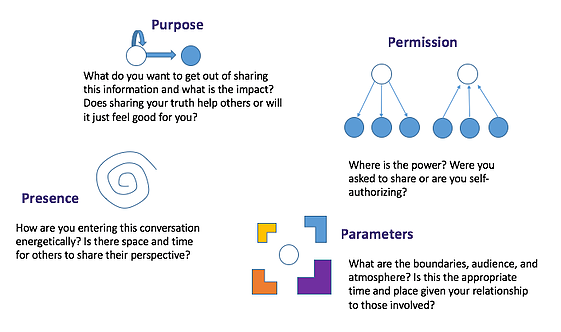 2- The law of authentic discernment: This starts and ends with one question: does what I’m about to share aid or detract from the values, intentions and agreements we have within this relationship? If yes, share on. If not, what is the benefit of sharing it? As one of my past business partners and Justin Timberlake alike recently made famous through the song “Say Something,” "Sometimes the greatest way of saying something, is to say nothing at all.” If catharsis, authenticity for the sake of authenticity, acknowledgement or being right is the real agenda, take it from someone who’s learned this the hard way. RETHINK saying it out loud. As Crystal Dujowich of the Valencore team put it, remember to consider these 4 things.... 3- The law of authentic depth: When you share a vulnerable, authentic share, people’s ability to engage with it, is directly proportional to the depth of their own emotional tolerability threshold. If what you share is within the realm of things they too have experienced or have had first hand experience dealing with, or have watched someone else deal with second hand, they will feel more comfortable and competent to engage with the subject matter or content. If however, it’s a long way into the unfamiliar or shadow territory for them in terms of having put right there in their face the stuff about themselves they perhaps weren’t ready to confront yet or would really prefer NOT to see right now, and or it affects them a little too deeply in a context they may not have been expecting (like it just suddenly appeared in their social media feed, or they really don’t know you that well), people may have an averse response to engaging, rather than be drawn towards engaging. Remedy: where possible, it helps if we can ask for permission before we share and share using the tips in the following points to come, particularly in relationship to social media, to create an environment for respectful, consent-driven engagement. But there’s also an element of surrender in this in first remembering that a) trust and intimacy in human connection of all forms (and with your audience) takes time to build and can just as quickly easily be lost if we don’t respect the power of impact of our shares. And in one way, even when we exercise discernment and compassion, what we ultimately have the control over changing is our own state and presence, we can’t change other people’s shadow and what goes on in their heads. We have to respect that they either will or won’t be ready and or willing to engage with you and its their choice wether they go there with you in any given interaction, or they don’t, based on whatever their aspirations, values and desires are in life too. Some people will love the real us, some people won’t. It is what it is. For every person, just remember though, there are 3 more that will be perfectly aligned with and wiling to go there WITH us. 4-The law of Therapist and Client comfort in transformation shares: For all of population who have either been trained as Counsellors, Coaches, therapists, transformationologists, capable of holding trauma and deep transformational work, we have developed a much greater tolerance of authentic depth and sharing of deep emotional reflection than the average person on the street. Likewise, anyone who’s ever engaged in these services (e.g. clients) who’ve been in therapy or transformative processes come to share over time that same tolerance threshold of the depths of human emotional complexity and they have a similar higher threshold for engaging with “human realness.” If we’re not mindful in the impact of what we’re delivering, our shares may actually see their eyes explode, jaws drop and induce an excuse for their speedy exit. Primary lesson: wether a personal development veteran or a Therapist/Counsellor/Coach with a duty of care, remember, some people out there still have everything that is now “normal” to you in their “unknown/unaware” section of their awareness. In other words we have to be mindful of the potential and literal impact of what comes out one’s own truth hole as personal development masters, and for Therapists/Counsellors/Coaches, as per our duty of care, especially on social media, where there’s no real world cues to interpret for further clarification, if we want our audience to feel safe to come closer. 5-The law of vicarious social share trauma: In this day and age, in a Facebook or Twitter or Insta feed, it’s a split second scroll between a post about cats doing funny stuff and a highly triggering animal welfare post about abused cats. Which, to each person’s human brain and consciousness comprehending it, we must remember, has a psychological impact. There is a very real thing that happens now of the risk of highly spontaneous and vicarious trauma occurring from what shows up in one’s feed that comes as a shock to the system. Remedy: that is not to say DON’T share. As above, that is simply to say that we can help reduce the risk of shock-type impact by contextualising and giving warning tags about emotive posts or personal shares which might be of a sensitive nature #sensitivepost which can give people around us the heads-up about what lies ahead so they can choose to engage or not engage accordingly, in that moment, or at a later time of their choosing. 6- The law of stage specific engagement in healing: You may remember that model I shared a couple of months back about the stages of trauma recovery? There is a social law that applies here to authenticity. People will engage or react to your shares according to what phase of the healing journey they are in. If you like, check back on this post for a recap. Remedy: as a population, it would be handy for us all to have knowledge of the healing process so that we also know how best to relate with and support each other and can have compassion for each other in terms of recognising the need (and right) of each to be present with whatever stage they’re at and engage or not engage based on the inherent needs of that specific stage. This is how we can all lovingly support each other in this, as a human family, trusting that connection, support and whatever else we need will always be available at whatever stage we’re at. 7- The law of the elephant memory: When it comes to traumatic reactions, unconsciously, people might miss 26 of your positive posts, but there is a tendency to NOT forget that one thing you shared that impacted them and their sense of internal safety. The brain is designed to recognise and NOT to forget it in fact. If someone has put you in the “unsafe” zone, you might well be on the receiving end of withdrawn attention and the silent treatement. So this may also come with a post share or social engagement lag period, while someone impacted by a share may impose an unspoken social block-out and avoid you for a little bit, so they don’t have to deal with your/their shadow elephant. Until they’ve witnessed you share enough (and after that they’ve owned and processed enough) to trust that they can feel safe to engage with you at a suitably comfortable, situation appropriate and positive engagement level of authentic engagement again. 8- The law of authentic permission seeking: There exists an unconscious social convention whereby one is expected to actually a) ask for permission to share something personal before one just unloads something highly emotive or engage the other in essentially holding space while the other person works through a process and b) appropriately contextualise what you’re about to share so that people can make a choice about whether they engage or they don’t and c) wether temporarily (because maybe it’s not a great time right now, but it may be a better time at 3pm Tues) or the other extreme of indefinitely. Remedy: wether professional or personal, where there’s to be one on one engagement, ask if you can “share something with the other that may be a little emotive in nature or is about your process right now, is that cool with you?” Likewise, in a business or therapeutic context, it’s good to ask if we can share a personal disclosure that we deem may be relevant to the person in front of us, given what they just said or where they’re at. Personally speaking, it’s good to be straight up, heart-centred direct if you recognise that you’re needing someone to hold process or witness you right now, and if it’s appropriate (given the nature of your engagement), would they be willing to hold that space for you? If they’re a client or potential one though, read on to the next…. 9- The law of authentic business role appropriate sharing. This is an extension of the Practitioner one and is a big one for social media and relates to the primary purpose for which one has engaged people on their social media channels and the context of wether it’s in a personal or business relationship between the members of the audience and the owner of the account. Generally speaking, if the account is for business purposes, then there will be an expectation that you the professional are providing a service and content to the audience and an expectation that you be giving to them and holding space for them where appropriate. Not to mention a set of real world ethical professional considerations regarding the Coach/Therapist Client relationship STILL actually apply in the online realm. But the feeling of permissiveness and freedom that social media has provided in terms of consequence free sharing and “me” focussed sharing in the spirit of authenticity and vulnerability has lead to a therapeutic blurring of the boundaries. Where now we have therapists/transformational people sharing THEIR live personal process with the audience and PULLING energy from the client audience they are wanting to serve and/or who may be paying them FOR a service. But its worth remembering, AS the service provider , because of the power over dynamic that can inherently exist in this ind of relationship and relative to the stage of healing the client or potential client is in, is it actually the best thing for them to be laying this kind of authenticity on them? Will it potentially create confusion and maybe increase the risk of what therapists call “transference?” Yes we’re all grown adults and have the right to choose what we do and don’t engage with. BUT, it’s worth remembering that, when people’s wounds and trauma is up, it may not be the conscious adult part of them that’s actually running the show…and we need to just be a bit mindful of that when we’re sharing in a professional context, where duty of care applies. Remedy: To simply the whole matter, we can ask ourselves one simple question before sharing. Is this about me or is this about them? Eg, is it about my personal process and are you REALLY actually wanting people to hold space for you and acknowledge you right now? Or is it a “lesson already learned, now I want to share the gold” type moment? On social media, we can tag our posts accordingly with something like #personalpost and a first sentence that clearly, directly states that “you’re working through something right now and asks for audience input if that’s ok with them (if not feel free to scroll on)” or (possibly more ideally) the other possibility is to group your contacts into various professional categories/lists and tag your audience accordingly (e.g. share with close friends only on FB), not your wider, public audience. Or, if you’re already at the point with the process where you’ve got the gold and can now teach the gold, share it from that place as an educational post. With a #sensitivecontentwarning if there’s content of a potentially sensitive nature. 10- The law of authentic business testimonial disclosure As a separate add on to that, respect for confidentiality and privacy law is another big concern right now, in that I’m seeing that there are A LOT of messages from clients being shared straight to social media and I’m wondering, from a Therapist perspective and a business perspective if permission is being sort for all of these. Remedy: Likewise, before sharing even a de-identified client story or testimonial, remember we’re meant to get consent for that (Under Australian Privacy Law for example, no matter what type of client or customer, it’s a legal requirement that we’re meant to ask in fact.). Even if it’s de-identified, a client may pick it as being about them regardless….and then you’ve just risked compromising trust. So, key takeaway, always remember to ask them, is it ok if I share this de-identified, or as a direct testimonial with your audience? And finally: 11- The Law of unsolicited professional opinion sharing And finally, this one is the professional advise side of number 8, but from a professional standpoint, where we feel compelled to help or support a person or persons, regardless of wether they actually asked for our authentic opinion and advise or not. Remedy: Easily solved with one question: Can I provide some coaching/share my perspective on that? Now the other person can say no (in which case, respect it) or yes and with the green professional light, you’re free to provide your awesome expert perspective. And again, they’re free to take it on board or leave it. I could go on for more, but for the sake of digestibility, let’s call it at that for today, hey? There is a gorgeous magic that goes with authenticity and vulnerability. When shared with heart connection, compassion and sensitivity, It ultimately does help us heal, brings us closer and allows us to deepen the trust and intimacy in relationships of all kinds, which is a beautiful, beautiful thing. But like any craft, authentic truth sharing, like wielding a sword, for business and personal purposes, is an art form that must be respected for it’s power and capacity to impact and influence in either the negative or positive direction. To quote Leadership expert Chris Cancialosi, “Leading authentically isn’t simply about being yourself and living up to your values; sometimes it also means developing the ability to adapt. Understanding true authenticity means that if you need to shift your views and values, you must consider letting go of some aspect of your past self and learn to be authentic to your future self.” In other words, sometimes the challenge of being authentic is to own the slightly undesirable aspects of one’s shadow self, find the light-side expression of that exact same trait and embody that aspect fully now in the present instead. Nat xxooReferences Crystal Dujowich, How to Avoid Unloading Your Truth: 4 Reflective Prompts for Mindful Leadership Voice, October 13, 2016 http://www.valencoreconsulting.com/single-post/2016/10/12/How-to-Avoid-Unloading-Your-Truth-4-Reflective-Prompts-for-Mindful-Leadership-Voice-1 Chris Cancialosi, 6 Authentic Leadership Tips for Overcoming Your Fears, May 30 2015 https://www.forbes.com/sites/chriscancialosi/2015/03/30/6-authentic-leadership-tips-for-overcoming-your-fears/#63f0e10d79f0 Taylor Peyton Roberts, The Disturbing Truth about Just Being Authentic, Oct 20, 2016 http://www.valencoreconsulting.com/single-post/2016/10/19/The-Disturbing-Truth-about-%E2%80%9CJust-Being-Authentic%E2%80%9D
1- Don't line yourself up to serve a broke target market. DO line yourself up in service to one or more abundant ones.Oh please trust me, I know how hard this one is for women. Sometimes guilt should be our middle name. We all have a group of people we would rather die than leave behind when they’re in crisis, because we feel like that was once us. But here too is the blunt cold hard truth you HAVE to hear if you’re serious about making it in business. You have to make a decision early on as to wether you want to run a business, or the type of work you want to do is actually more suited to delivery as part of a charitable organisational structure, where you actively seek funding for your cause, but track it in a totally different way to a business. Why? While you can have both aspects running at the same time, trust me, what you can't do is run your business like a charity and expect to still be in it in even 1-7 years time. Running it charging practically nothing Robin Hood style, is a prescription for broke, burnt out and the possibility of returning to that, or A job you were never really that into in the first place. As beautiful as our ginormous desires to help the people we felt born to help are, not every group of potential clients is a viable match alone for running a successful business. Particularly not if that client group is in a dire state of poverty. To keep trying to serve them if they come can set you up to in the life boat with practically no supplies, with 500 people trying to climb in your almost empty of support resources boat. In real life terms, that means how are you going to pay your bills that need to be paid with actual money and feed you and those you love, if your clients can hardly pay you $20 for a product or service? Key takeaway- you need to make a clear decision now. Are you going to run a charity? Can you afford to? Or are you going to run a business? If it helps, know that you can always get your business up and running and then come back to the charity. Or (as my ex business partner and I once did) give a small percentage of every one of our event sales to one of our nominated charities that supports that client group) in the interim. Just not more than you're practically able to give right now. You may also wish to: -create an offering your clients can utilise independent of you that you sell to them very cheaply. And -set up a referral process to free support resources for any clients who genuinely can’t afford your consultations or group programs. But, don't market it as your main thing. Offer it as a down-sell instead if they can't pay for your highest level offering. Now your energy is freed up to build a practice or business serving the people who CAN afford you. Second take away- now pick an abundant target market or two that can afford you (and get over your sh#t about receiving their money.) Remember, more than likely, whatever offerings you’ve created so far have applicability or could be easily modified to serve the needs of multiple different groups of other people too. You just now have to brainstorm who they might be. (And maybe get willing to take a little step outside your comfort zone of known and familiar/comfortable networks/colleagues/social circles to reach them). Yay, just like the photos Marty and the Doc took of the past in Back to the Future, your life boat picture is already starting to fade...whoo hoo! 2- Get willing to ask for help. And the right kind of help, from the right kind of people.One of the questions i ask my clients when we first chat and we go over further in my Business Coaching program is who is on their support team for them and their business? Do they have one? Hopefully after last week's blog, you got to thinking about it. But practically, have you thought about how many of these people or support resources you might need?
Key takeaway- it takes a village to raise a child and a village to raise a successful business person (and a Thoughtleader) and the support picture is a big factor in your success. Answer all of those and now the picture is of a bigger boat, chock full of supplies, with a boat behind of extra supplies. You liking how this works? 3- Commit to staying in the game for the long termIncreasingly, we are living in the phenomenon of the disposal society now. Disposable, single portion plastic, disposable devices built to only last 1-2 years, seasonal, disposable fashion and customisable online and interior design. Disposable Netflix binge series’, disposable boyfriends and girlfriends…if anything goes wrong, hey you can just go shopping on Bumble or Tinder or Elite Singles and get another one. According in extensive research done by David and Jonah Stillman, Gen X at Work- How the Next Generation is transforming the workplace, this is the kind of psychology that is now impacting all of the tech savvy generations. The pace of life is dramatically faster, the speed of insight is dramatically faster, our attention is on the now and the entertainment industry has our attention on short term and immediate gratification, because everything from Facebook to Wii is designed to keep it there and focussed of the instant gratification of the next hit of dopamine we’ll get from something that shows up in there in the next 30 secs. Hence, FOMO is at an all time high, hence fear of commitment and making the wrong choice is at an all time high along with it. This not only has huge implications for those of us designing services and products for our businesses, but it has a huge impact too on our psychology in staying IN a business long enough to get momentum. To be straight with you, from my years of Coaching and Mentoring Wellness and Service Based Business Women, i think far too many women now consider quitting at the first sign of trouble. They got so excited about this first amazing offering they wanted to launch that was so close to their heart….but then no-one bought. Maybe a couple of people liked their posts about it. In this culture, most people tend to take this as a sign that they’ve done the wrong thing, that they’re not aligned or the universe must be punishing them in some way for having done something wrong somewhere in the process. That maybe nobody likes them or they’re not cut out for this and it's a sign that they should just quit. Our jobs as Business and Leadership Coaches for start up businesses see us hearing several of these conversations a week from our clients in various types of launches. Does it truly mean any of these things? For the most part, dig a little deeper into the circumstantial evidence of what’s really going on and no, it is not the case. Maybe they weren’t clear enough who it was for and hence the the ad copy missed the mark, maybe they talked about a problem the therapist would know was the problem but the client wouldn’t know was the real underlying cause (and hence the clients wouldn’t think the offering was for them and would've scrolled straight past it), maybe they did an organic Facebook post and organic personal posts with business words don’t get reach now in peoples personal feed, hence no-one liked it, maybe they’re exhausted or in crises this week and don’t actually HAVE any internal bandwidth left to take on board 10 extra clients and yes maybe they have any number of mindset blocks to success and receiving what they truly want. There can be a thousand different causes and yet not one of them means necessarily that you should give up and quit. This game takes a whole lot of patience, determination, resilience, the willingness to open up and be seen and to fall down and get back up, in front of ALOT of people, over and over until you get it right. Some people get it right faster than others. Some people have a Midas touch seemingly in one area and then have to build themselves up in another to balance out the whole business success picture. But the point is, you have to be willing to commit to consistently staying IN the process for the long term, while you practice (a bit like how the NASA technicians and astronauts described their jobs in the movie The Martian) asking for help, thinking quick and engineering often highly inventive and ingenious solutions on the fly while you’re already IN a moving vehicle, to not only get your stuff out there, but manage all the short term financial and life challenges that still happen along the way at all levels while you’re doing it, until such time that you have enough perpetual motion going that it starts to feel more like riding a moving vehicle, than pushing a stationary one up and out of the atmosphere. But even then, it’s never easy, the challenges level up and you STILL have to keep adding fuel over the long term….in consistent and continual marketing, in touch points, in continuing to consistently deliver, to a crowd who now already know, like and trust you, in managing more and more people and functions (and handing over management of more and more non essential to your work ones) as your business continues to grow. And more than anything else maintaining commitment to work life balance and the people who love you most and you care about most who support you along the ride, that are often part of our big WHY for nailing this in the first place. Key takeaway: You have to decide to 110% commit to this journey and remind yourself often why you got into it in the first place. Stay connected to your deepest, soulful calling and it will compel you to stay in for the ride, threw the rainbows and sunshine and the rain. I’ve always said to people that nothing is ever impossible, no matter what background you’ve started from. Success is actually inevitable, if you’re willing to stay in the game and keep growing long enough to achieve it. If you want it bad enough, there’ll always be a way. Nat xx
If, like a large percentage of the population: -you’ve ever struggled to speak for what you want and need, AS WELL AS to what you can give and how you can be of service -if you’re someone who feels like you have a whole network of people you give your everything to, but you feel like you don’t get much or what you’d really like back -if you feel like there's a lot of constant flux in your circle -if you’re someone who didn’t naturally come from an abundant family and is still learning how to take the creative process of life by the reins so to speak or -you had never had a management level role in your working life before starting a business this will be relevant for you. For anyone who grew up feeling like they didn’t often get a chance to ask for or to be heard in what they wanted or needed, people in this boat, instead of asking for what they want, often tended to compensate by getting busy loving and treating other people in the way that they themselves wanted to be treated and then hoped the other person will get the download on that that’s how they want to be treated and expect the other party will reciprocate in kind. There’s lots of assumptions made. And, in the absence of the possibility or availability for clear verbal discussion, some learn to instead start making emotional reasoning based assumptions and assessments, that if it feels good, it must be right. And in the absence of any verbal confirmation, that what evidence their brain has gathered to make sense of what's going on with the other is what they have to operate on as the truth. They can also assume that if they’re giving generously to people in this selfless way, the other party automatically will get that they’re a priority to them and that we want to build something with them or have some form of relationship grow together. And assume that if the other party shows any sign of engagement and excitement back, the other party must feel the same. But that doesn't always ring true to how things really turn out, does it? Sometimes we can get caught up in seeing what we want to see, instead of what's actually really there. The assuming can also be a way of avoiding any possible fear and unpleasantness of reality that maybe the other person DOESN'T feel the same way, or maybe they do just a little bit, and if love and intimacy is in any way in short demand at that time, accepting what little bit is there can be tempting, over raising the bar and risking losing all of it entirely. I could be here for a week if i tried to get to the bottom of all of our individual investments in such a dynamic. But they can be summed up i think well enough in we'll do anything we can to avoid either fear, pain or death...and rejection feels like all three at once. How did this come to be? This can be the legacy of many years of maybe not being allowed to ask for what they want and having to almost psychicly work out from withdrawn or non communicative/non available parents (and later maybe partners or friends) what on earth is really going on with them. Hence having had little opportunity to practice. Or, conversely, maybe it was they asking lots of questions about what the other party needed because the other party had a lot of need, but maybe the question (or the love) didn’t much ever come back the other way because of the intensity of the need of the other party (major illness could be one example of such a need.) And they got used to receiving, being ok with just a little bit of what they truly wanted or needed. Maybe they were just never encouraged to feel into and ask for what they want full stop and or to confront and learn to deal with the possibility of rejection as well as potentially being met. Not to mention that women are still throwing off the last remnants of having had the selfless giving thing conditioned into them from way back when, give give give, nurturing selflessly, be grateful that the man or someone is providing, don't forget to keep give give giving in each of your 3 plus major life roles you're juggling and what everyone else wants comes first. Because we love to bits the people around us, we don't want to mess it up and let everyone down, even if it half kills us trying to meet everyone else's needs and help them be happy. But in the modern day lifestyle, the combination of any of those approaches only gets you so far before you either a) fall down from exhaustion or b) resentment or c) both. But rarely to feeling fully loved, supported and met. No one is an island and at some point somewhere, we've got to learn to become more aware of what our own needs are and then how to ask for support to help us meet them. Especially if you want to be able to help more people on a bigger scale. Plus, in employed positions, before the inception of a more values based style of leadership that is "the thing" now (but also i would say, innate to the helping industries anyhow), there’s been the expectation for a long time that a lower level role requires being asked to do it now, this way, by this time, without question....and if there is a question, it’s to get more info about getting it done how the company wanted it done. As a follow on to an education system that often asked the same. Non questioning and compliance was an expected, rewarded thing, as was selfless giving to the cause. Under many years work under that dynamic, they might have got to asking the customers and other teams things, but not had the chance, the practice in yet asking, from the self reflection AND the managerial power position, things about what THEY now need, what they now need done, when and how. As well as the new way of being the values based, servant leader asking the right questions to find ways to motivate and inspire their teams to to take action towards a common goal or set of goals. Ultimately, when you're in the Practitioner/Business Owner or the Leader seat, now you have to be the one asking the questions (and as a colleague once famously said) asking the right kind of questions to get the outcome you and or the other party seek, is key. Asking the right kind of questions from day 1 also, is key to creating the right kind of long lasting relationships of all kinds. And to creating longevity within your inner circle. Which starts with asking oneself the right kind of questions first, before asking the right set of questions of others and flat out (like I was speaking to, two weeks back) being able to directly communicate and negotiate for what you want and what they do too, from a place of self awareness and groundedness. When it comes to creating the ideal inner circle, here’s a few questions you can use to up your self awareness and get a bit more discerning about what you really need and who is really the right fit to let into your inner circle of support:
Getting in the habit of asking any of those kind of questions of ourselves a bit more often helps raise the bar on the kinds of connections we create. And before you worry yourself that it will mean many might leave to stand for more of these things (true, some who aren’t in alignment or aren’t willing to meet you half way on it might just opt out), more often than not though, when you actually raise the self love bar and be honest about what you really need, a whole bunch of love and support people have been waiting to give you, while you BE the biggest version of yourself (and while you've been giving so much too) can actually finally meet you and get in. And that starts to create a much more solid foundation on which you can build your dreams and your mutually shared ones at that. Until next time, have fun, take care. Nat xoxo
Whatever your gender, it’s equally as relevant, it just plays out in slightly different ways. For men, it’s the fear that emotionally, they are nothing and won’t survive without the love of a woman. For women, it’s the indescribable fear that they’re not enough alone, will be financially screwed and wont be able to survive (literally) without a man. And the equal both-way representation that they’ll drown in unhappiness and wont cope if either is alone, that causes them to get so uptight and hold on so tight at the slightest sign of relationship trouble. (As separate to the soulful bonded, feeling soulfully drawn to commit all-in to actual marriage type of HOLDING, instead of holding ON.) Which, for some, also collides in the meeting of business and relationship challenges and endings, and then sometimes goes hand in hand with the simultaneous fear of loss of status, money and material stuff and the form of love that comes through having those things. All these things that we sometimes believe we need to be happy and fulfilled, and at a deeper level, to be loved and be worthy of love. Who really are we without all that? Without the externally given love, respect and adoration? In my life, I’ve lived long enough so far and talked to enough clients to experience or witness all. Enough to know that neither illusion of loss is entirely true. (Even if it might feel very true for a while and thus, at times, we might believe for a while that it is.) And I've seen both long enough to know what's often really going on when things appear to be more falling apart, rather than falling together. Firstly, for the men and the feminine. Why I know it’s not true, that horrendous, fearful gasp of fear, neh terror that you’ll die without your woman. (and the womb). And for women and people full stop, if someone were to leave or, worst case scenario, pass on, why I know for a fact that we wont die. Did my Dad, did I, my brother, did my Mum's parents or any of us die when she did? Sure, it hurt like nothing many of you have ever felt. But my Dad went and got a higher paid private sector job, threw himself into parenting and met my step mum 11 years later. My Mum's Dad, post retiring as GM of a textile company, threw himself into charity fundraising to fund a cure and support for anyone like my Mum. After he lost my Grandmother just over 10 years later, he became Bone Marrow Donor Institutes Volunteer of the Year in i think 2004/5 for his fundraising efforts, finally did something he'd been scared to do and got together with some musical friends and started singing at concerts in aged care homes. Plus he finally wrote his memoirs. My other Grandfather, after Nana died, took to travelling more and everywhere he'd go, he'd end up surrounded on buses by a crowd of young women hanging off his every word and story, or with his Grandkids doing the same. So, while I hear you for sure, do i think that it would kill you? I know it wouldn't. In terms of did the women in my family die of it after losing all those people? Did I? Sure, I hurt like hell. Because when i love, i REALLY love. And there are massive parts of yourself and identities that have to be let go of when someone who was fulfilling one set of roles in family, partnership or life moves on and you have to step up to fill them. But then i just turned that love into going all out in the pursuit of every life purpose i love. In high school performing arts was my salvation, not just my passion. Later making a difference and Wellness became my passion. There were moments, particularly in high school and up to my mid 20’s, where still, even doing what i love, I still literally felt like I would die if i was alone and or in my 20’s if I didn’t manifest a man, to fill the giant self love hole that still existed in my insides, I wasn't complete. And also, because i had it in my head that my life purpose WAS my salvation, at some point, it all had to go too so i could come back to zero point and do SELF LOVE, minus any filler of the internal gaps, that was somehow getting in the way of who I was meant to soulfully becoming at that particular time. And part of that was to remember the part of me that still had to learn how to be my own best friend. That part of me still needed to learn how to be my own primary caregiver and then become fully available to create my own family in this lifetime AND do awesome, abundant, making a difference things in business AND have my adventurous lifestyle moments too. To come back to my soulful realisation that it's not an either OR in this lifetime. And how would life look if i had it all? As one of my gorgeous colleagues and Mentors in the lovely Christina Guidotti would say, you can be a woman and have it all. Does that mean it will all be easy? No. But you can. If you're willing to do the work, internal and external. To bring it back to the fear of women about not surviving without a man, I also had to learn how to fully jump out of the nest, financially speaking and trusted in my ability to maintain it. I was very lucky in that, for many years, someone was always willing to show up and help fill the emotional and financial gap when I was falling short. But at the same time, not, in that I never got to fully confront having to make it work solely and only under my own steam. So why do you think all the parents and partners, business and romantic, bless them, all had to take the hands away or fall down at some point? So that i could find my true soulful ability to make money myself doing what i love and BELIEVE that i don't NEED a man or anyone to do it? (That's NOT to say i don't deeply APPRECIATE all the help and support that came back in after though or that i don't WANT it :-) But there was a learning, a few "ruin" moments that had to happen before more collaboration so i could "get it." And more than that, the second time, realise that i actually no longer HAD any fear. What and who was willing to grow along ultimately came back, or was still willing to play. More than that, i had to "get it" that i was enough minus the externally achieved status. This last couple of years, I’d also talked to a lot of multiple 6 and multiple 7 figure business men AND women, who at one point, achieved and received amazing accolades for their material achievements and success, and at times also lost everything else. (Have you really "made it" as an entrepreneur unless you've lost it all, as well as had it all at least once i ask?! ) Cars, fancy titles, ginormous houses, massive incomes and businesses, and the status of high achievement, all wiped back to some form of zero point, or close enough to it. What do they both have in common? Again, truthfully, some part of them thought they would be nothing and have nothing without them and no one would want them without them. Were they right? Ultimately No. They might have had to lose a few people who mirrored that same fear on the way though, until they got the lesson, the download that higher love and your true value as a soul isn't dependent on how much money and stuff you have on the books. Is it? what do all these scenarios have in common as the need and the remedy? Self love. And through embracing it, through embracing ones highest potential, through connecting with a higher love and purpose, and embracing oneself as ones own best friend and salvation, one finally, completely liberates themselves from all illusion and terror that one is not enough without something or someone in particular. That one cannot do it without someone or something. And finds an opportunity, with a near clear slate, to embrace the truth that they really CAN/ More than that, they already have the resources within to do it. They just need enough time and room made to GO within and connect with them. And that too is a part of the gift, stripping away all the ego and ideas of who they think they are, to get back to the simplicity of who they actually ARE, soulfully speaking. Now, from that place, one becomes truly ready to create something. And to love and give and receive, from a place of fullness. Love and abundance alike, in the forms of relationships or lastingly accumulating assets and wealth, struggle to fully ground in past the blocks of our beliefs, patterns and misconceptions, until we’re willing to confront our sh%t long enough that they CAN get in and stay for a bit. Which means you’ve got to charge head-long into that horrendous fear of losing whatever it is you fear to lose, to breathe through it, until you eventually realise that, actually, this isn't killing me, i have the ability to endure this, and rise from this, then the "falsehoods" fall on their heads and the ultimate truth breaks through, along with the shining light of your true self. Thus, as painful as it is, as well as immensely rewarding, if we’re truly serious about living love and embodying love’s purpose for us, we have to be willing to commit to looking in the mirror and dying thousands of times over, to be reborn again and again to the versions of ourselves that can grow forward with the people you love/who love you and grow forward living loves higher purpose. No one else can do it for us. Which is why it feels so lonely in life's "take stuff away" moments, like everyone has taken their hands and their presence (temporarily) away. Because they have, with love, so that we can be alone long enough to truly see oneself and fall in love with oneself and one's new, true, soulful self and purpose. In filling our own cups first, we become infinitely more able to nurture our personal relationships to blossom and be infinitely more mutually rewarding, both ways. And then receiving love from the outside becomes even more beautiful. Likewise, we make way for our work relationships and businesses to blossom in the same way. And yes, death, impermanence is a part of life, so the more we commit to all being who we truly are and living love, the more we can expect what's not that to fall away. But also the people, technology, things, committed to growing and adapting with us, are able to stay and evolve together. Ruin is a gift. It is the road to transformation, back to love, so that life no longer HAS to keep taking things away, being truly who we really soulfully are, we become ready to grow with them, in a very long term, committed, all-in kind of way. Until next time, have fun, take care. Nat xxoo |
WriterActress, Artist, Singer, Coach, Facilitator, Speaker, Writer Nat Ferrier talks about self expression, Women’s Leadership Mindset & communicating with greater confidence, presence & psychological safety. Archives
March 2024
Categories |

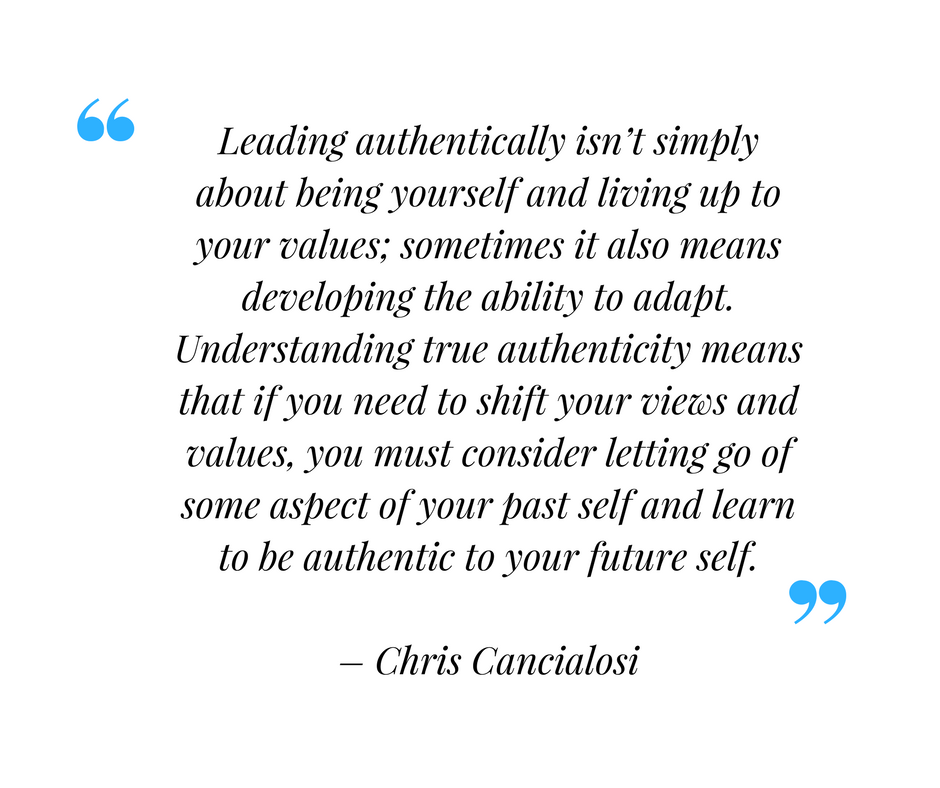
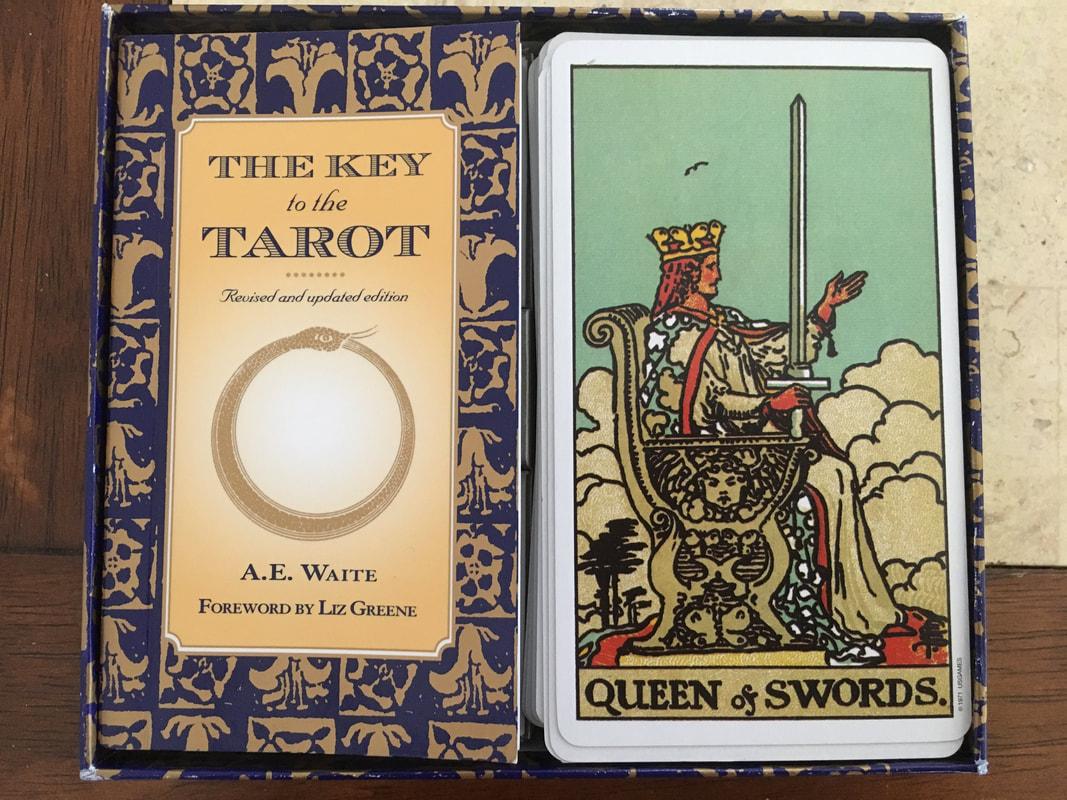
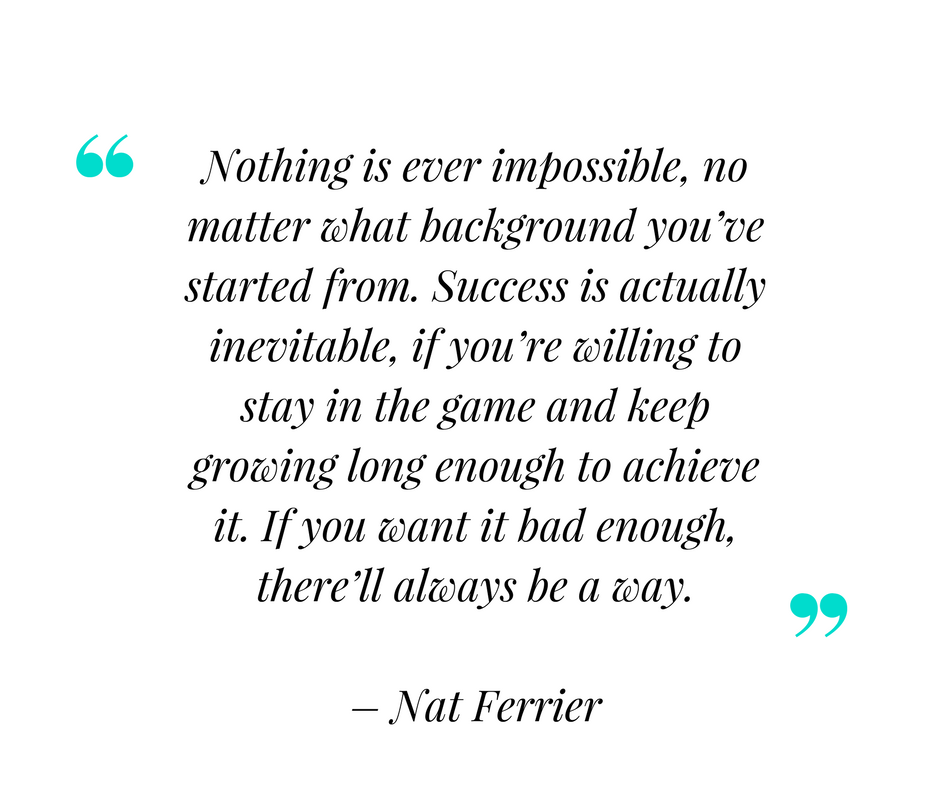

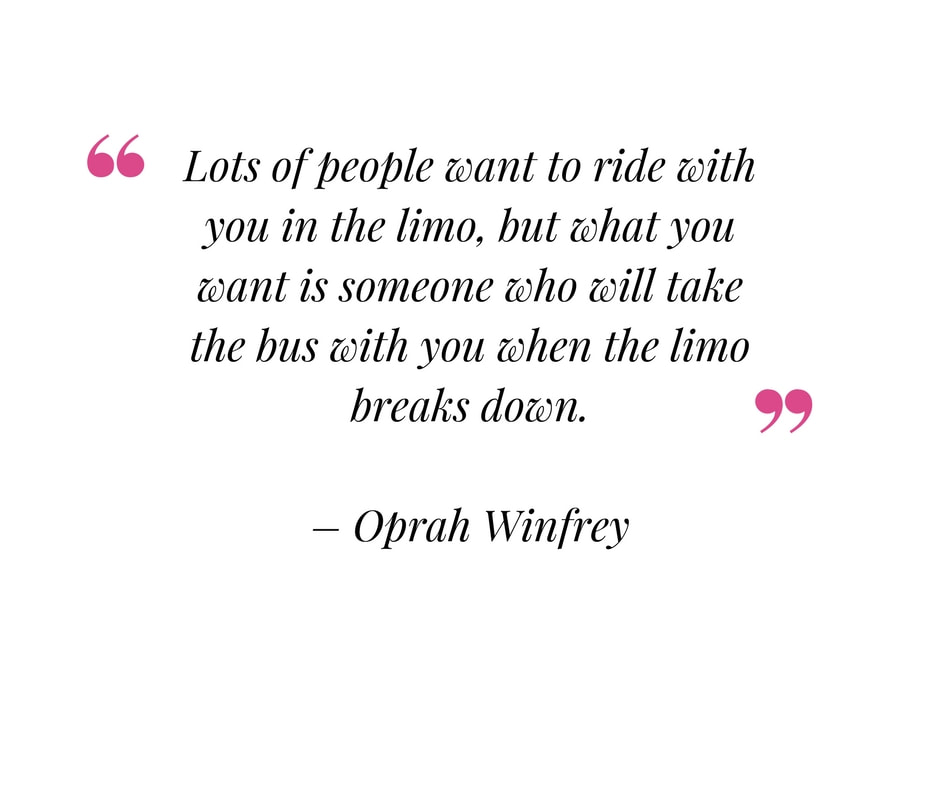
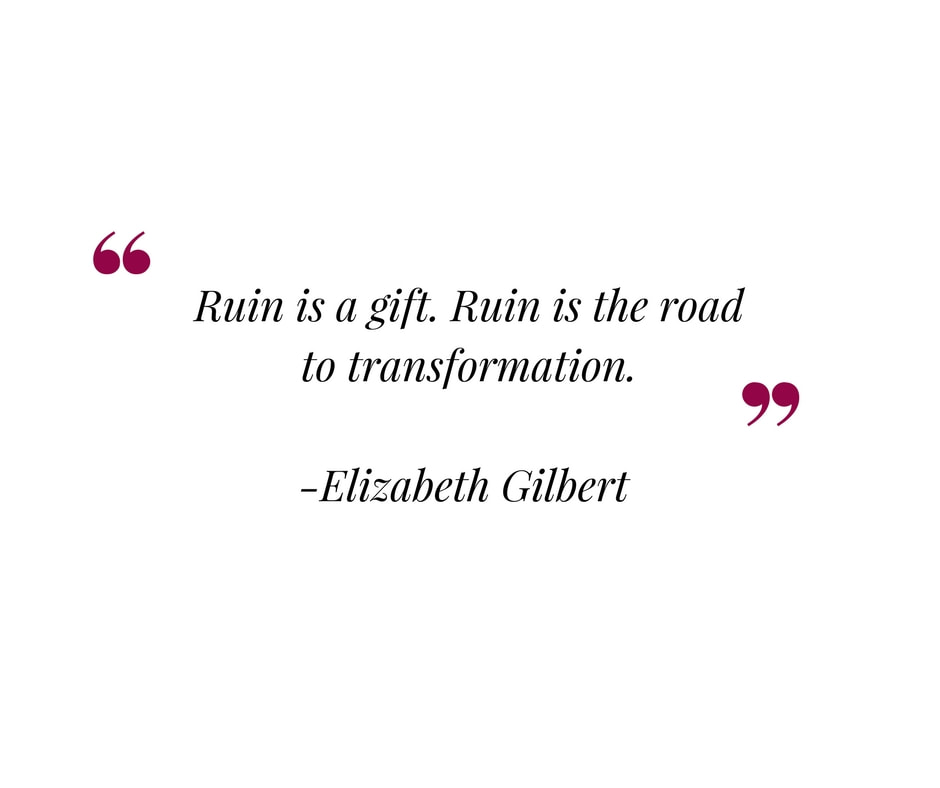






 RSS Feed
RSS Feed